News
Exploring Teacher Training In Remote India
It is a foregone conclusion that the poor quality of education in rural schools will surely affect the employability of rural youth. And this is the outcome of the poor training given to teachers in the remote rural areas.
Published
4 years agoon
By
Shukla Bose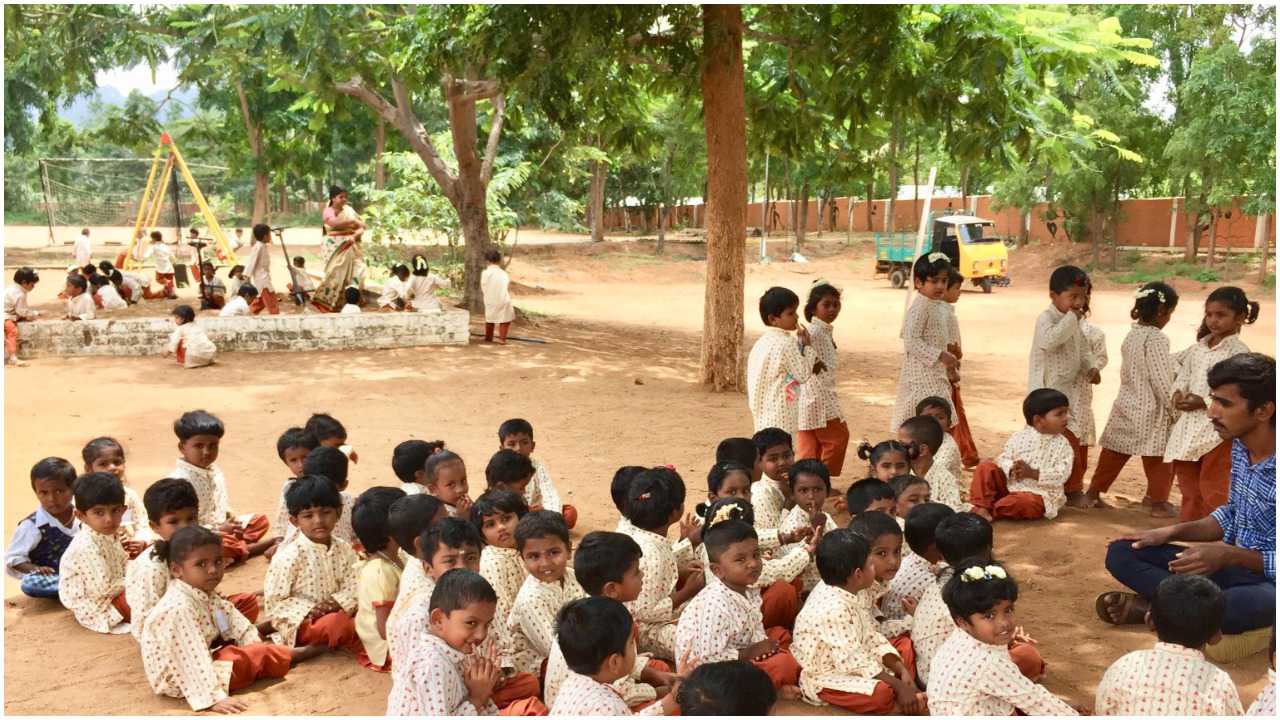
With a great deal of sadness and shame, one has to agree with the Nobel Laureate economist Dr Amarthya Sen’s observations shared at London School of Economics, that “India is the only country in the world which is trying to be the global economic power with an uneducated and unhealthy labour force." This is not just idle talk but a reality that is facing us all. Of the 280 million children in the world who are not going to school, 80 million children come from India alone. And the tragic trajectory of only 35% attendance in government schools, especially in the rural areas, and more than 61% drop-out by the time the students reach secondary school is further perpetuated because we have such ill-trained and demotivated teachers right across the country.
As a contrast, India could actually be in a position to boast of one of the largest education systems in the world. There are nearly 5.98 lakh primary schools, 76 lakh elementary schools and 98,000 higher secondary schools in the country. We have about 1300 teacher training institutes for elementary teachers and nearly 700 colleges of education preparing teachers for secondary and higher secondary schools. Out of about 4.52 million teachers in the country, nearly 3 million are teaching at the elementary level. This huge machinery is something to boast about but unfortunately, in this number game, what is severely lacking is the quality of teaching and learning.
In rural India, almost half of grade V students cannot read a grade II text and more than 70% of them cannot carry out the simple division. A common feature across the Indian education system is a shortage of qualified teachers. With nearly one in six elementary school teachers not professionally trained, India must improve its spending on teacher training. It is sad that just 2% of the 2018-19 budget allocated for Samagra Shiksha Abhiyan (‘holistic education program’) was spent on teachers’ training institutes.
Right to Education Act of 2009 (Section 23) had mandated that all government school-teachers should possess minimum qualifications laid down by the National Council of Teacher Education. Under guidelines released in November 2010, those not qualified were given time until March 31, 2015, to complete their training. Yet, in 2015-16, of 6.6 million teachers employed at the elementary level, 1.1 million were untrained. Of these, 5,12,000 were in government and aided schools and 5,98,000 in private schools. At the secondary school level, of 2 million teachers, around 14% were not professionally qualified, according to the education ministry.
Poor employability is a direct outcome of poor education. With 70% of India’s workforce residing in rural areas, it is rural India that will form the majority of tomorrow’s workforce. NITI Aayog estimates that half of the total Indian population is expected to be in rural India by 2050. Right now a major cause for rural to urban migration is the search for better employment opportunities in cities. The net migration from rural to urban areas is about 20 lakh per annum, of which 10 lakh are expected to be job-seekers as per MSS Research. During this current pandemic we saw for the first time, a reverse migration happens when the labourers lost their jobs because of the lockdown and slowing of the economy. They were evicted from their houses because of non-payment of rents, and could not manage three square meals a day. If the education in the rural areas were up to the mark and the rural youth were employable both in the villages and cities then this social churn would not have happened. It is a foregone conclusion that the poor quality of education in rural schools will surely affect the employability of rural youth. And this is the outcome of the poor training given to teachers in the remote rural areas.
Large proportions of untrained teachers, both at the elementary and the secondary level, exist in the remote areas of West Bengal, Bihar, Jharkhand, Uttar Pradesh and Chhattisgarh. The story is not too different in the remote areas of other states as well. The reasons for this is simple, there has been very little systematic planning to ensure that teaching as a profession is valued and respected and therefore attracts the best talent. The reality is that teaching has not been the first choice of career for most teachers for a few decades now. It is viewed as a stopgap arrangement and a convenient career choice for women. The magical ingredient of passion is sorely lacking amongst most teachers. In remote parts of the country, it is even more difficult to reach out to teachers both for pre-service and in-service training. The share of teachers’ education budget in school budget has consistently declined from 1.3% in 2009-10 to 1.1% in 2018-19 showing that teachers’ training has been accorded low priority.
I am of the opinion that the training of teachers of rural schools in remote parts of the country has to be designed differently. The curriculum has to be a lot more hands-on, experiential and relevant to the children there. Since most of the teachers themselves come from the same background, they would find it easier and more meaningful to teach children what can be easily applicable in that background. Most of the training for teachers is very theoretical and therefore does not highlight the real problems in the field. While some effort is being made to enhance knowledge of teachers through subject training, nothing is being done to ignite passion and pride in the teaching profession. More emphasis needs to be put upon practice teaching so that the individuals are able to generate more confidence in themselves and work to their best abilities to improve their teaching skills.
A few studies have been done on the condition of teacher education in the country but woefully not enough that addresses the conditions in rural India. The identified problems are the obvious ones, like the short duration of the training program as compared to other countries and therefore the lack of depth and gravitas of such training. The problem begins right from the time the student-teachers are selected for the program. The individuals overwhelmed by poverty, insecurity and vulnerability usually experience problems inadequately depicting their skills, even when they are educated and possess the needed information (Mallica, 2005). It is unfortunate that teacher education institutions have not paid much attention to the promotion of creativity (Sharma, 2018). It is for this reason that the practice of rote learning continues in most Indian schools and definitely in the ones in remote India. It is obvious that the teaching profession is not valued and therefore does not attract much investment either from the government, the school management and the teachers themselves. This leads to a lack of professionalism in the teaching profession
The National Council of Teacher Education (NCTE) has become a mere regulatory body. The main job duty that it performs is to control the administrative functioning of the institutions and prevent them from turning into commercial institutions. Where this department has failed is to incorporate innovative contemporary practices in education into the curriculum and establishing quality controls to ensure that the pedagogy is of high standards. It is for this reason that the quality of teaching has not been given any importance and is actually in the decline.
In the midst of this great turmoil, there is a glimmer of hope coming through with the new National Education Policy 2020 that has recommended a slew of changes to the country’s education system. As per the new policy, by 2030, the minimum degree required for teaching will be a four-year integrated BEd. Apart from this, the Teacher Eligibility Test (TET) will also be changed as per the new school system.
National Testing Agency (NTA) test scores in the corresponding subjects will also be taken into account for recruitment. The NTA will hold exams for all subjects and a common aptitude test.
Those who qualify TET will have to give a demonstration or appear in an interview, and show their knowledge of the local language, as per the new policy. As per the NEP – “Interview will become an integral part of teacher hiring." These interviews would also assess comfort and proficiency in teaching in the local language. It would be a must for teachers in private schools as well to qualify TET. While this seems a good idea, it is, however, unclear how they propose to interview teachers in remote areas.
Under the National Education Policy, a new National Curriculum, Framework for Teacher Education (NCFTE), will be formulated in the country. The new policy acknowledges that no reform will work unless the teacher is brought onto the centre-stage. Critics have raised issues about the policies opaque treatment of “contract teachers or para teachers” which is one of the critical reasons for the poor quality of teaching in the remote parts of the country. The policy is not clear about the working conditions and salaries of these ‘local’ teachers, nor is there any clarity about who will hire them. The number of contract teachers in India’s education system has steadily grown from 3,16,091 at the elementary level in 2010-11 to 6,32,316 by 2017-18 at the elementary and secondary levels. While the draft NEP of 2019 made an unequivocal statement about discontinuing the practice of contract teachers, NEP 2020 does not do so. It is well known that this system can be dysfunctional and even unfair because two sets of teachers are expected to do the same work under two entirely different service conditions.
Teacher vacancies have also been a huge problem in India. The year 2018-19 saw 11.7% vacancies against the sanctioned posts of teachers. States like Bihar, Chhattisgarh, Jharkhand and Uttar Pradesh had more than 30% of the posts sanctioned in the Samagra Shiksha vacant. NEP has not given any timelines about how and when these vacancies will be filled.
None of the good ideas discussed in NEP 2020 can see any reality without a clear road map to transform the way teachers both in the cities and remote places are positioned in the educational system.
In the post-COVID-19 era, more will be demanded by our teachers and we need to prepare them for it. Our teachers may have to do a lot more than just show up in the classroom. Teachers have to rediscover themselves as counsellors and healers to deal with the uncertainties that the children are facing. The question to ask is how do we, as a nation, prepare ourselves for this onerous task and do it well?

About the author: Shukla Bose is the Founder-CEO of Parikrma Humanity Foundation, a nonprofit organisation that runs English-medium schools for underprivileged children. She can be reached on Twitter at @ShuklaBose.
You may like
-


Kerala Sets National Benchmark with AI Training Programme for 80,000 Teachers
-


From Overwhelmed to Empowered: Strengthening Educator Skills for Success
-


Post-pandemic: Embracing Well-being in India’s Schools with My Guide Inside
-
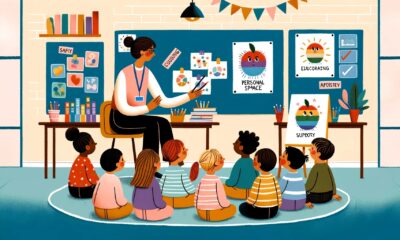

National Safety Day: The Importance of Teaching Good Touch and Bad Touch in Schools
-
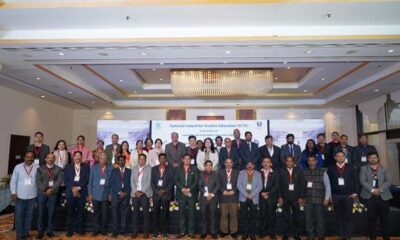

NCTE organizes 1-Day National Conference on Teacher Eligibility Test (TET) in partnership with CBSE
-


The Future of K-12 Education in Low-Income Countries: A Digital Learning Perspective
-
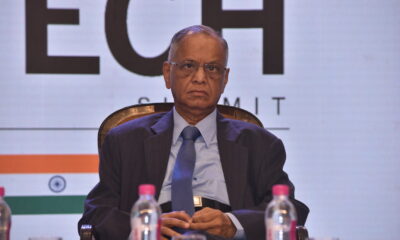

Educational Renaissance: Narayana Murthy’s Visionary Call for a $1 Billion Investment in Teacher Training
-


Mental Health and Well-Being in K-12: Strategies for Supporting Student Wellness
-


11 Free Mental Health Courses for Teachers
-
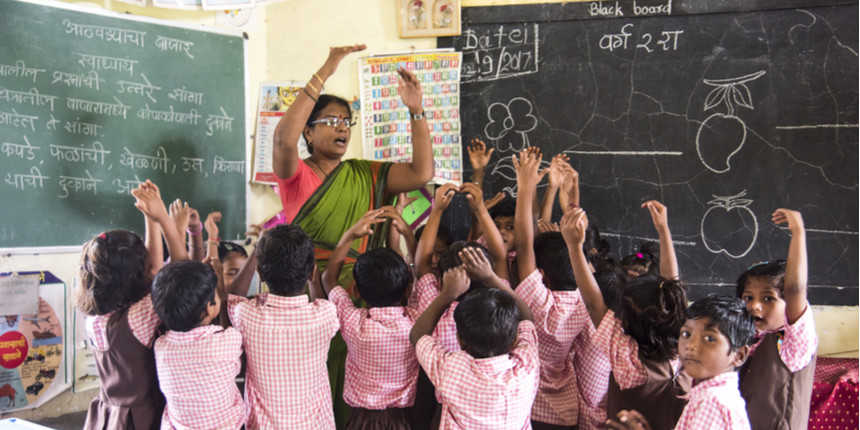

Ministry of Education notifies Four Year Integrated Teacher Education Programme
Education
India’s Eupheus Learning Recognised in TIME’s World’s Top EdTech Rising Stars of 2024
Published
1 day agoon
April 25, 2024
New Delhi, India – April 25, 2024 – Eupheus Learning, an Indian school-focused distribution platform, has been featured in TIME’s list of the World’s Top EdTech Rising Stars for 2024. The company, known for its innovative educational solutions, was recognized for its significant revenue growth over the past three years.
Amit Kapoor, Co-founder and CEO of Eupheus Learning, commented on the achievement, saying, “We are honoured to be recognized by TIME and STATISTA as one of the world’s top EdTech rising stars. This acknowledgment reflects our continuous pursuit of excellence and the positive impact our initiatives have had on the education sector.”
Eupheus Learning distinguishes itself in the educational sector by bridging the gap between in-classroom and at-home learning environments. Established in 2017, the company has quickly grown to serve over 10,000 schools across India, reaching one in every four premium private schools nationwide.
The company largely attributes its success to its pedagogically differentiated and technology-driven solutions, designed to meet the changing needs of educators and students. Their approach integrates various learning tools that cater to Kinaesthetic Learning, Reading Enhancement, STEM/STEAM, and English language learning.
Eupheus Learning’s initiatives include conducting Storytelling Sessions for Kids, hosting Olympiads, and organizing Coding Competitions, which have contributed to its strong market presence. The company aims to expand its reach to 10 million children in India through its classroom-first and curriculum-focused approach.
The recognition by TIME and STATISTA underscores Eupheus Learning’s commitment to empowering educators and students with innovative solutions that support lifelong learning and holistic development. This acknowledgment serves as a testament to Indian companies constantly influencing the global education landscape positively.
Education
Kerala Sets National Benchmark with AI Training Programme for 80,000 Teachers
Published
1 day agoon
April 25, 2024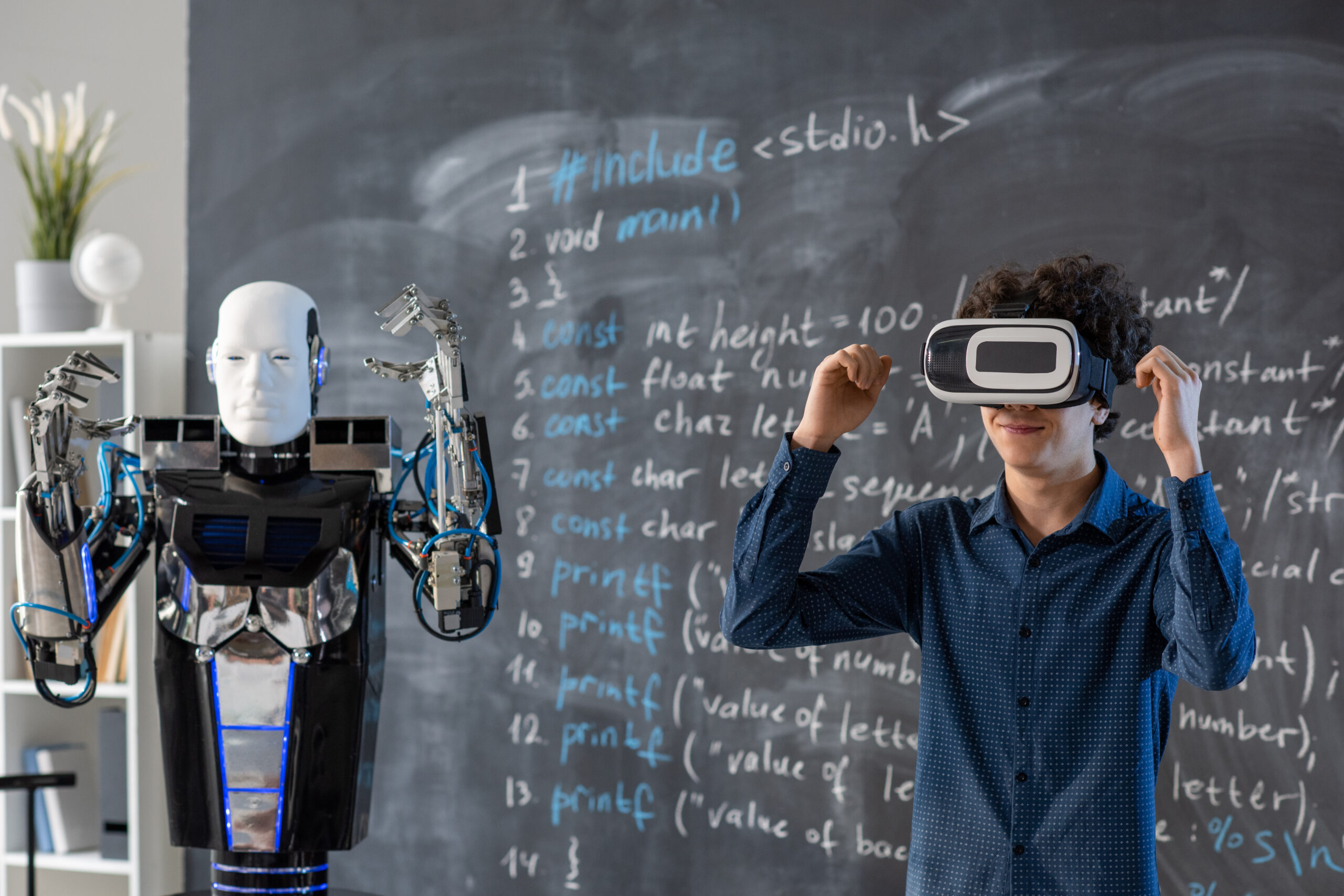
In an unprecedented move to integrate Artificial Intelligence into the educational framework, Kerala is set to launch a comprehensive AI training programme for approximately 80,000 secondary school teachers. Scheduled to begin on May 2, this initiative, spearheaded by the Kerala Infrastructure and Technology for Education (KITE), aims to revolutionise teaching methodologies and learning outcomes across the state.
Empowering Teachers with AI Skills
The three-day training programme is designed to empower teachers from Classes 8 to 12 with essential AI skills, enhancing their pedagogical techniques and ensuring they are adept at utilising advanced technologies in their teaching practices. The focus is on summarisation techniques to simplify complex documents and generate concise summaries from PDFs, images, and videos, ensuring key information is retained and even creating new content using AI tools.
Innovative Training Modules
Further enriching the training curriculum, KITE has incorporated sessions on Prompt Engineering and Machine Learning, which will enable teachers to craft precise prompts that maximize the utility of AI tools. This hands-on approach not only enriches their understanding of AI mechanisms but also allows them to apply these skills practically in educational settings.
Additionally, the programme will introduce AI-driven assessment techniques, providing teachers with new methods for designing diverse question formats and optimizing the assessment process through customisable tables, graphs, and charts.
Master Trainers and Personalised Learning
Under the guidance of 180 Master Trainers who have undergone a comprehensive one-month AI training, the programme is set to deliver high-quality education and support to teachers. According to K Anvar Sadath, Chief Executive Officer of KITE, “This programme not only equips teachers with cutting-edge AI capabilities but also fosters a culture of responsible AI usage.”
The training also aims to personalize learning activities to cater to individual student needs and adapt resources to be inclusive for students with disabilities, ensuring a holistic and equitable educational environment.
Pioneering a Future-Ready Educator Workforce
This bold initiative by Kerala not only promises to transform the educational landscape within the state but also sets a stellar example for other states to follow. The integration of AI into teaching practices is not just a progressive step towards modernizing education but also essential in preparing a future-ready educator workforce.
By investing in such forward-thinking programmes, states can ensure that their educators are not left behind in the rapidly evolving technological world. The benefits of equipping teachers with AI skills extend beyond enhanced educational outcomes; they include fostering an environment of innovation and critical thinking, crucial in nurturing the next generation of thinkers and leaders.
Why Other States Should Follow Suit
The success of Kerala’s initiative could serve as a catalyst for national educational reform. Other states stand to benefit immensely from implementing similar training programmes, which would not only elevate the quality of education but also strengthen the infrastructure of learning by integrating technology and innovation.
As reported by India Today, Kerala’s AI training programme is a pioneering effort in the realm of educational technology in India, setting a benchmark for others to emulate. It underscores the state’s commitment to creating an educational system that is inclusive, innovative, and in tune with the needs of the digital age.
In conclusion, Kerala’s approach provides a scalable model of how technology and education can intersect to create impactful learning experiences. This initiative not only enhances the capabilities of current educators but also ensures that the educational sector can adapt and thrive in an increasingly digital future.
Education
Ooty Set to Host India’s Premier Liberal Arts Symposium: LASSI 2024
Published
3 days agoon
April 23, 2024
ScooNews, in collaboration with Good Shepherd International School, is set to host Liberal Arts and Science Symposium India (LASSI 2024), a transformative symposium designed to reshape the understanding and application of Liberal Arts and Science education in India. The event, themed ‘Shaping Tomorrow,’ will convene at the serene campus of Good Shepherd International School, nestled in the Nilgiri Hills, and aims to attract educators, students, and industry experts from across the world.
LASSI 2024 is dedicated to exploring the vital role of Liberal Arts and Sciences in developing well-rounded individuals capable of thriving in a dynamic global landscape. The event will provide a comprehensive platform for attendees to delve into the core concepts of Liberal Arts, tackle prevalent challenges, and assess the global perspectives shaping this field of study.
The symposium will feature an array of masterclasses, keynotes, and case studies, each designed to provide deep insights into the integration of Liberal Arts in modern education and its relevance in today’s job market. Participants will gain first-hand knowledge about overcoming barriers to implementing Liberal Arts in the Indian education system and the professional impacts of such an education.
Jacob Thomas, President of Good Shepherd International School, Ooty, expressed his enthusiasm about hosting the event: “GSIS is privileged to host the LASSI conclave, which is more than just an event; it’s a celebration of the enduring essence of education, the beauty of collaborative effort, and our collective quest for knowledge. We invite everyone to embrace this opportunity to learn, share, and engage in groundbreaking explorations of liberal arts and social sciences.”
The event will feature a dynamic series of presentations by a distinguished lineup of speakers. Leading the charge is Professor Sugata Mitra, a globally renowned educationist, who will deliver a session designed to inspire and redefine educational norms. Vardan Kabra, co-founder of Fountainhead School and author of “Reimagining Indian Education,” will discuss innovative educational strategies, and Maheshwar Peri, Founder of Careers360, will explore the variety of Liberal Arts programs in India. Additional speakers include, Naman Kandoi from Mayoor School Jaipur, Shankar Vanavarayar from Kumaraguru Group of Institutions, Chetna Mehrotra from Rangbhumi, Dr. Venka Purushothaman from LASALLE College of the Arts, Singapore, Prof Anil Srinivasan from Krea University, Dr Vijila Keneddy from KCLAS, Radhika Lobo from Vidyashilp University, Rahul Batra from Prakriti School, Reena Gupta from Ashoka University, Nisha Bhakar from Nandha Gokulam Life School, Sandeep Sethi from Maharaja Sawai Man Singh II Museum Trust, Vivek Atray from Shoolini University, and Prof. Saikat Majumdar from Ashoka University.
Additionally, LASSI 2024 will showcase leading Liberal Arts colleges from India and around the world, helping guide prospective students in making informed decisions about their educational futures. Success stories and groundbreaking research findings presented at the symposium will underscore the transformative impact of Liberal Arts education on careers and personal growth.
Set against the backdrop of Good Shepherd International School’s commitment to excellence in academics, sports, and co-curricular activities, LASSI 2024 promises to be a landmark event in the educational calendar. The school’s ethos, encapsulated by its motto “Truth, Trust, and Triumph,” aligns perfectly with the objectives of the symposium, promising a conducive environment for learning and interaction.
As LASSI 2024 prepares to open its doors, ScooNews and Good Shepherd International School invite educators, students, and all stakeholders to join in this enlightening journey. The symposium is poised to not only discuss but also shape the future of education, preparing the next generation for the challenges and opportunities of the 21st century.
Education
Scindia School Students Launch Start-Ups with White Canvas India’s Young CEO Program
Published
3 days agoon
April 23, 2024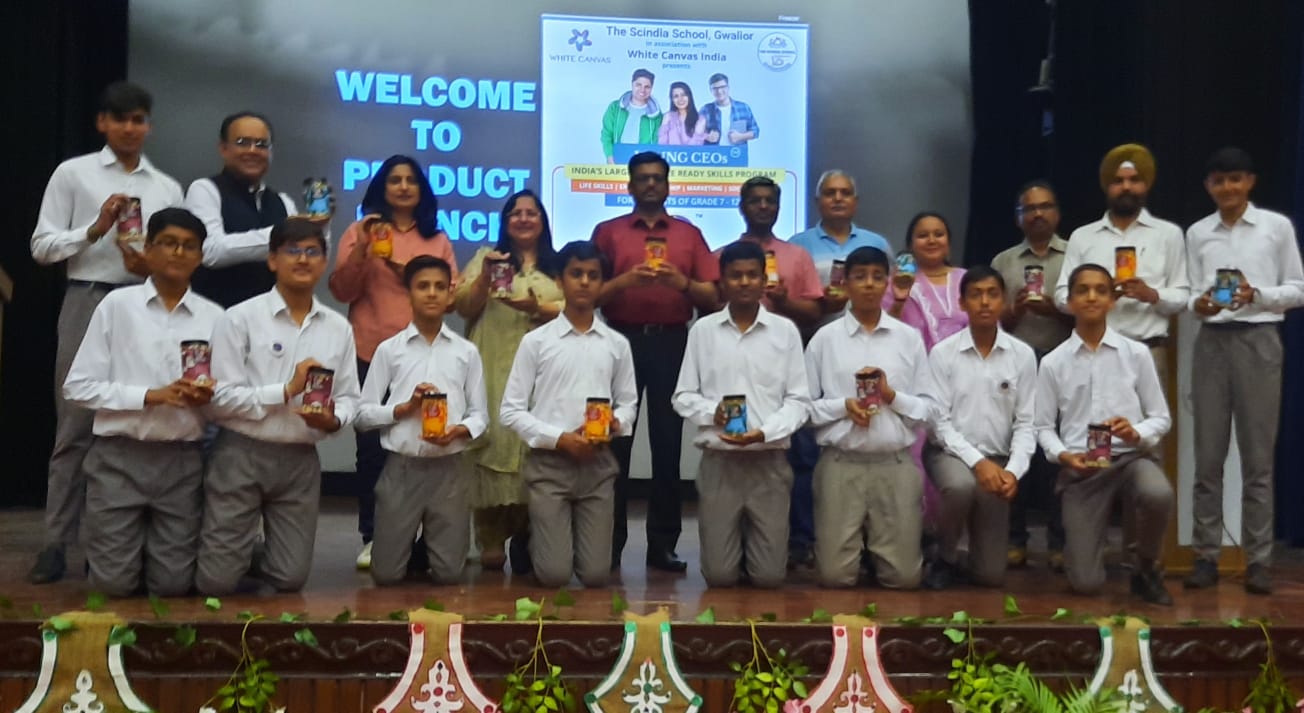
The Scindia School, in collaboration with White Canvas India’s Young CEO Program, has achieved a remarkable feat in fostering young entrepreneurship among its students. Inspired by Prime Minister Narendra Modi’s visit on October 21, 2023, where he encouraged students to “Dream big and Achieve big”, the school has seen the successful launch of three student-led start-ups within 100 working days following the event.
The newly established ventures include E – Siksha Sankalp, India’s pioneering digital literacy initiative that scales socio-entrepreneurial impact. Additionally, the students introduced Popped and Poppin, a novel superfood brand led by teenagers offering flavoured Makhana, and Bam brush, which features a range of sustainable products aligned with the United Nations Sustainable Development Goals.
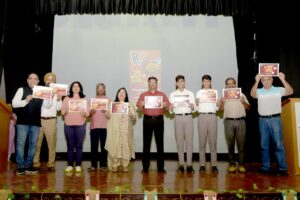
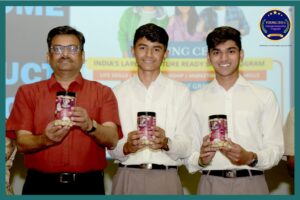
The teenage founders Khush Todi, Arrthham Jalan, Harshvardhan Wadher, Tanush Somani, and Ved Gupta have been deeply involved in every facet of their businesses. From conducting need analysis and crafting professional business plans to negotiating with vendors and marketing their products, these young entrepreneurs have actively demonstrated their capabilities in the real world. Their efforts are supported by the White Canvas India Young CEO Program, India’s first and most extensive entrepreneurial skills initiative for teenagers.
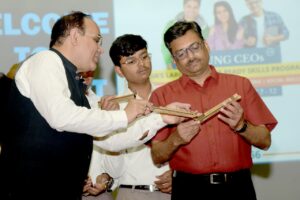
Shri Ajay Singh, Principal of The Scindia School, expressed his satisfaction with the program’s success, noting, “The program has met its outcomes and I am very happy.” Furthermore, Samaresh Shah, Founder of White Canvas India, highlighted the program’s broader mission, stating, “The White Canvas India Young CEO program is committed to making every Scindian a Viksit Bharat Ambassador.”
This initiative is in line with the National Education Policy and supports the vision of the World Economic Forum, Harvard Business Reports, and Forbes Entrepreneurship guidelines. It aims not just to educate but to empower students, equipping them with the necessary skills to thrive as future leaders and innovators.
As these young CEOs continue to develop their enterprises, they not only contribute to their personal growth but also set a precedent for youth entrepreneurship in India, proving that age is just a number when it comes to innovation and leadership.
Knowledge
Young Birders’ Workshop Opens Registration for Children Aged 10-13 Years
Published
1 week agoon
April 16, 2024
Early Bird, a not-for-profit initiative by the Nature Conservation Foundation, has announced the launch of an online birdwatching workshop tailored specifically for young enthusiasts aged 10-13 years. As birdwatching gains popularity across India, Early Bird aims to deepen young birders’ understanding of their natural surroundings, beyond merely ticking off bird names from their lists.
Set to commence during the summer holidays, this 4-week intensive programme will explore various themes through online sessions that combine multimedia, guided interactions, and lively discussions. These weekly live sessions will be held on consecutive weekends, each supplemented by an illustrated activity sheet that encourages participants to engage with and observe the green spaces around their homes.
The workshop is designed not only to educate but also to foster a deeper appreciation and awareness among children of the ecosystems they inhabit. “The workshop has changed our lives so much. We have found around 30 bird varieties around our house which we were completely unaware of,” shared Rupinder Kaur, a parent of a participant from previous workshops.
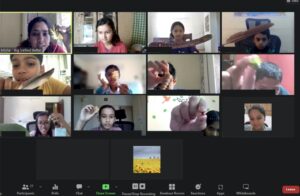
“My son never journaled or made notes. Now, he has started noticing everything when we go out to walk and wants to carry his journal. He has always hated writing but now carries his book and pencil and is ready to make notes. This workshop has made a difference to the way he looks at things. Quite enlightening. Has a lot to ask and share.“ said another participant’s parent.
While the workshop itself is free to attend, there is a nominal fee of Rs. 800 for materials, ensuring that all participants have access to the necessary resources to fully benefit from the experience.
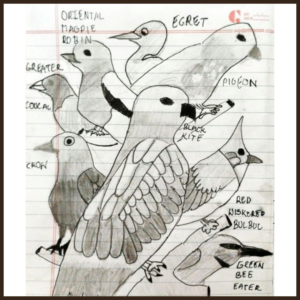
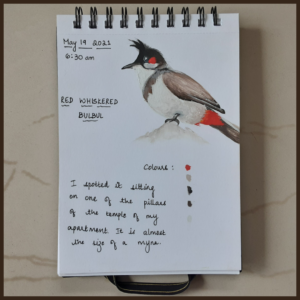

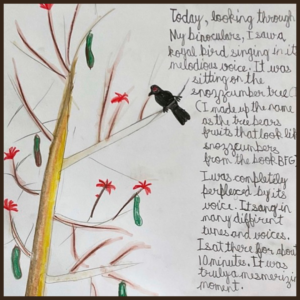
Registrations for the workshop are now open and can be accessed through the link provided here. This initiative aims to be an enlightening experience, allowing young minds to discover and connect with the biodiversity that exists right in their backyards.
Early Bird continues to dedicate itself to bringing children closer to nature through educational content, training educators, and direct outreach, fostering a new generation that values and conserves our natural world.
Education
STEMpedia Successfully Completed Codeavour 5.0- India’s National Innovation Fest
Published
2 weeks agoon
April 15, 2024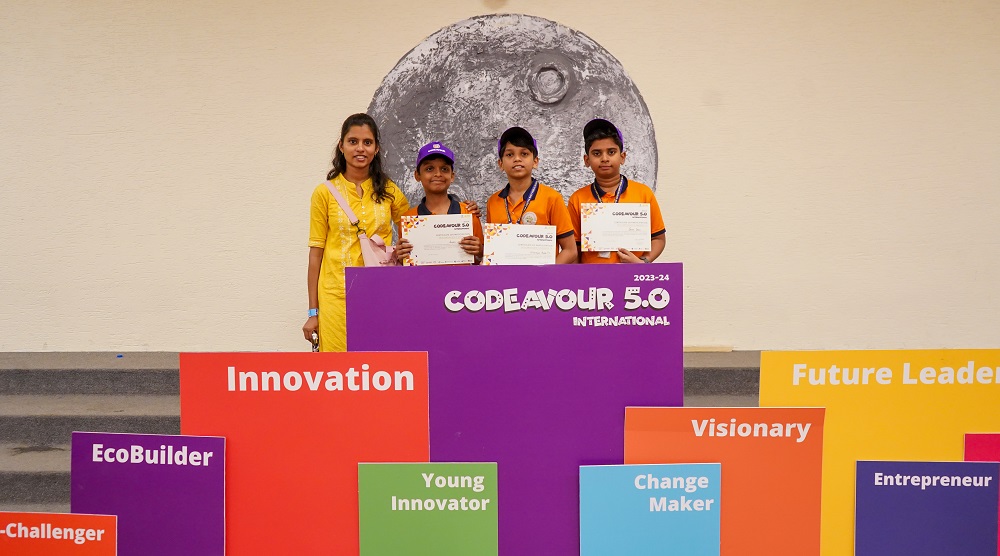
STEMpedia, in collaboration with ART PARK@IISc, India’s premier AI & Robotics Technology Park, established by the Indian Institute of Science in Bengaluru, successfully concluded the national level event of 2023’s biggest innovation fest, Codeavour 5.0 International. This year’s event, supported by leading organisations including AI Foundry, Startup India, and INDIAai, witnessed participation from 300,000 students across 70 countries, underscoring its global impact and the cumulative achievements of the competition to date.
The event, which also enjoyed backing from entities like AWS, NITI Aayog, and STEM.org, focused on fostering hands-on learning and innovation among next-gen participants. They were encouraged to create projects using PictoBlox that would contribute towards making the world a better place, aligning with the United Nations Sustainable Development Goals.
Dhrupal Shah, Director and CEO of STEMpedia, reflected on the journey and the fest’s objectives, saying, “Five years ago, we initiated Codeavour with the intention to empower young innovators and equip them with the necessary skills for the future workforce. This year, we are thrilled to announce that the top 20 winners will be awarded a trip to Mexico to participate in the FAB24 Event, accompanied by their mentors.”
The fest not only highlighted the technical skills of young minds but also provided them with a platform to showcase their creative solutions to real-world problems. In addition to the innovation and entrepreneurship track, participants competed in the AI-Robo City Challenge, demonstrating their prowess in applying AI and robotics to urban development challenges.
The panel discussion titled “AI EduFusion Conclave: Shaping Global School Education with AI, Robotics, and Policy Insights” was a highlight of the event, featuring experts like Dr. Sreejit Chakrabarthy from GEMS Dubai American Academy and Mr. Pankaj Verma from STEMpedia. The discussion provided insights into how governments and educational institutions are integrating AI and robotics into school curriculums to prepare students for future job markets.
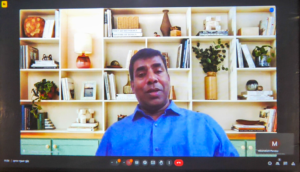
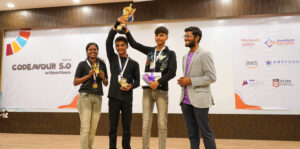
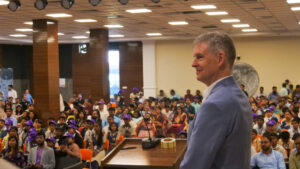
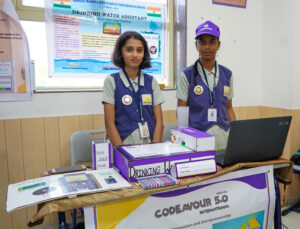
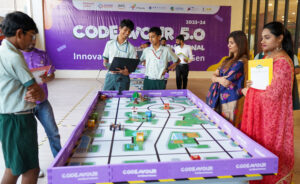
The event culminated with the National Innovation Awards, where participants presented projects that tackled environmental challenges and proposed sustainable solutions. Winners from the event will now proceed to the International Showdown in Dubai, hosted in partnership with Dubai American Academy.
As Codeavour 5.0 International wraps up, its success marks a significant step forward in integrating technology and education, inspiring the next generation of innovators and leaders to think critically and act creatively. The continued expansion of this fest promises to keep pushing the boundaries of what young students can achieve in the fields of AI and robotics.
Education
CBSE to Initiate Pilot for National Credit System in Grades 6, 9, and 11
Published
2 weeks agoon
April 11, 2024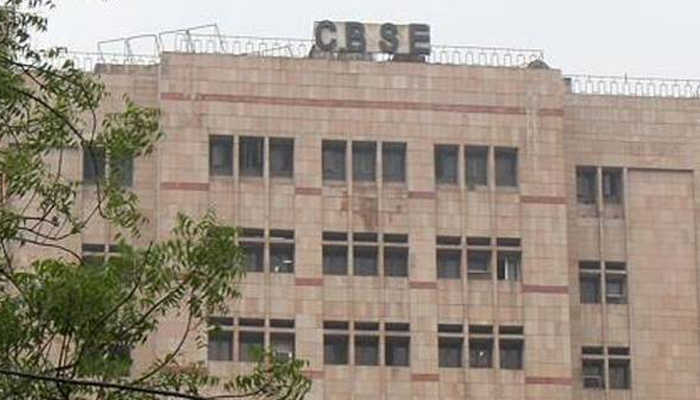
The Central Board of Secondary Education (CBSE) is set to launch the pilot for National Credit Framework for students in classes 6, 9, and 11, commencing in the 2024-25 academic session. This innovative step, aimed at fostering a seamless integration of school, higher, and vocational education, aligns with the National Education Policy (NEP) 2020’s vision for a holistic and flexible educational system.
Under the new scheme, students will have the opportunity to earn credits through a variety of learning avenues, including classroom teaching, laboratory work, projects, sports, performing arts, NCC, social work, vocational education, and experiential learning. These credits will be accumulated in the Academic Bank of Credit (ABC), linked to the student’s APAAR ID and DigiLocker, ensuring a cohesive and secure record of their academic journey.
The introduction of the National Credit Framework marks a significant shift towards competency and outcome-based education, aiming to bridge the gap in achieving learning outcomes. It encourages students to engage in additional courses, programs, or projects beyond the mandatory 40 credits, offering them the flexibility to tailor their educational experiences to their interests and career aspirations.
To facilitate the smooth implementation of this framework, the CBSE has developed draft guidelines, which have been refined through multiple workshops and received approval from the Union Ministry of Education. “To further test, refine, and assess their effectiveness in real-world contexts, a pilot implementation of these guidelines has been planned in schools affiliated with CBSE,” stated a letter from the CBSE to school principals.
Schools interested in participating in this groundbreaking pilot program have been invited to register their interest, marking a collaborative effort to enhance the educational offerings for students across the nation.
This initiative not only promises to transform the way students learn and earn qualifications but also paves the way for a more inclusive and flexible education system that caters to the diverse needs and aspirations of India’s youth. As the CBSE embarks on this ambitious journey, it sets the stage for a future where education is not just about accumulation of knowledge but the holistic development of every student.
(Source- PTI)
Education
NCERT Introduces Bridge Month Programme for Class 6 Amid Textbook Transition
Published
2 weeks agoon
April 10, 2024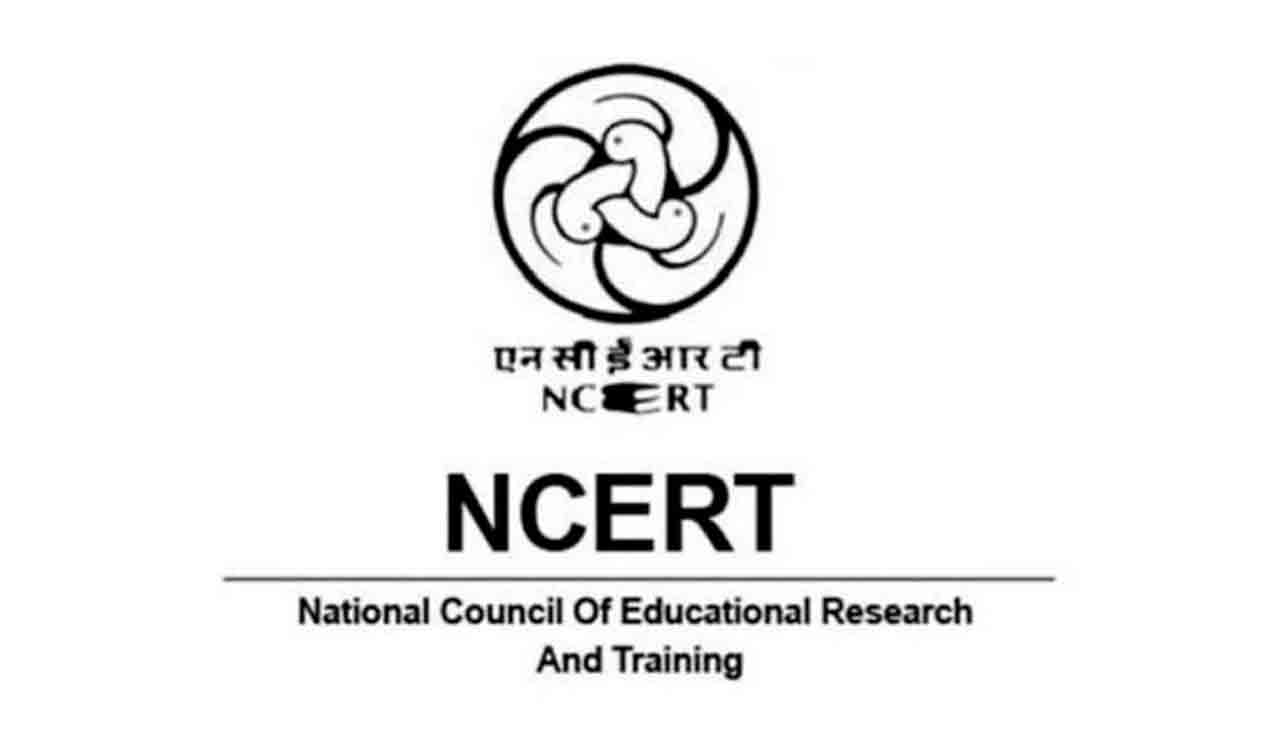
In a bid to revolutionize the educational landscape and foster a more dynamic learning environment, the National Council of Educational Research and Training (NCERT) has unveiled its Bridge Month Programme tailored for Class 6 students. This initiative marks a significant departure from conventional teaching methodologies, placing a heightened emphasis on interactive sessions and projects aimed at enhancing students’ overall skill set.
Aligned with the National Curriculum Framework for School Education (NCF-SE) and the recently implemented National Education Policy (NEP), NCERT’s Bridge Month Programme is poised to redefine the educational experience for both students and educators alike. By steering away from rote memorization towards a competency-based approach, the programme seeks to cultivate a deeper understanding of various subjects while nurturing critical thinking and problem-solving abilities.
The month-long bridge course is meticulously crafted to equip teachers with innovative pedagogical tools designed to engage students in enjoyable and enriching learning experiences. Through a curated blend of fun-based, play-based, and discovery-based activities, educators are empowered to guide students towards holistic development, transcending the boundaries of traditional classroom instruction.
Central to the programme’s ethos is the integration of vocational skills within the curriculum, commencing as early as Class 6. This forward-looking approach not only broadens students’ horizons but also fosters practical, real-world application of academic concepts. Additionally, the restructuring of the Grade 6 timetable allows for a dedicated immersion period, during which students can delve into a myriad of engaging activities spanning subjects like science, social studies, and vocational education.
With the impending release of new textbooks for Classes 3 and 6, NCERT’s phased approach ensures a seamless transition to the updated curriculum across all educational levels. As educators and students embark on this transformative journey, the overarching goal remains clear: to cultivate a generation of lifelong learners equipped with the skills and knowledge to thrive in an ever-evolving world.
As reported by India Today.
Education
Indian Embassy Advocates for India-US Collaboration in Education Sector
Published
3 weeks agoon
April 8, 2024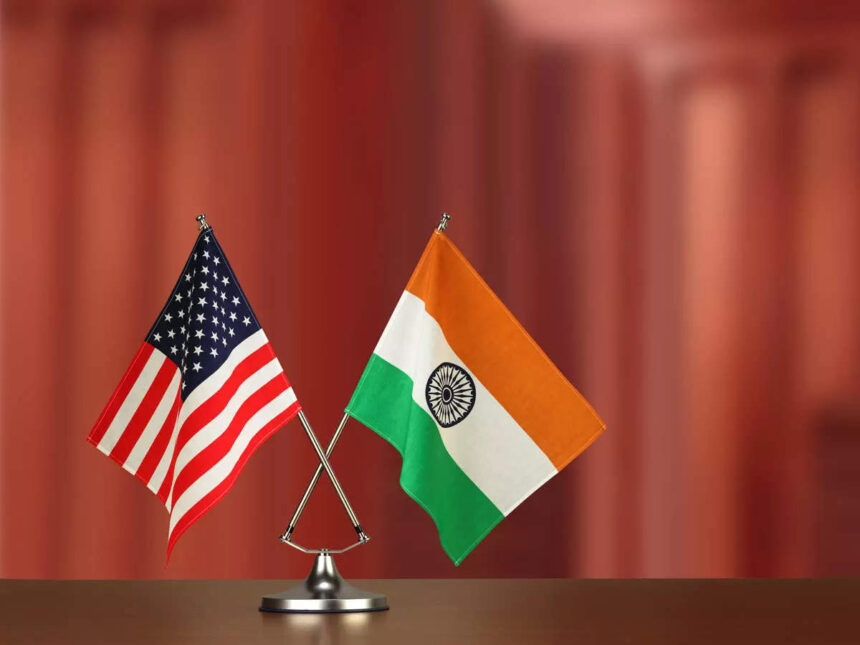
The Indian Embassy in Washington DC has underscored the significance of fostering collaboration between India and the United States in the realm of education. In a recent social media post on platform X, the embassy expressed contentment with the fruitful engagement it had with senior faculty members from esteemed universities in Washington DC.
During the interaction, the embassy stressed the substantial opportunities for bolstering knowledge and research partnerships between India and the US. This joint endeavour aims to bolster educational initiatives and advocate for the well-being of Indian students pursuing studies in the United States.
“Excellent interaction with senior faculty from prominent universities in Washington DC on India-US collaboration and opportunities for strengthening knowledge and research partnership and promote well-being of Indian students in the US,” stated the Indian Embassy in a post on X.
Moreover, amidst recent distressing incidents involving Indian nationals or individuals of Indian origin in the US, US Ambassador to India, Eric Garcetti, has addressed concerns regarding the safety of Indian students studying in the United States. Garcetti urged students to remain vigilant and employ appropriate safety precautions, while emphasizing the importance of staying connected with peers and utilizing campus safety resources to enhance awareness and preparedness.
In a recent interview with ANI, Garcetti acknowledged the distressing incidents involving Indian students, noting that such occurrences can statistically happen in a country of this scale. He reiterated the importance for students to remain vigilant and take necessary safety measures.
As per reports, five Indian students were reported dead in separate incidents in the first two months of 2024. (Source: ANI)
Education
CBSE Updates Exam Structure for 11th & 12th Class; Concept-based Questions Now 50% of Weightage
Published
3 weeks agoon
April 5, 2024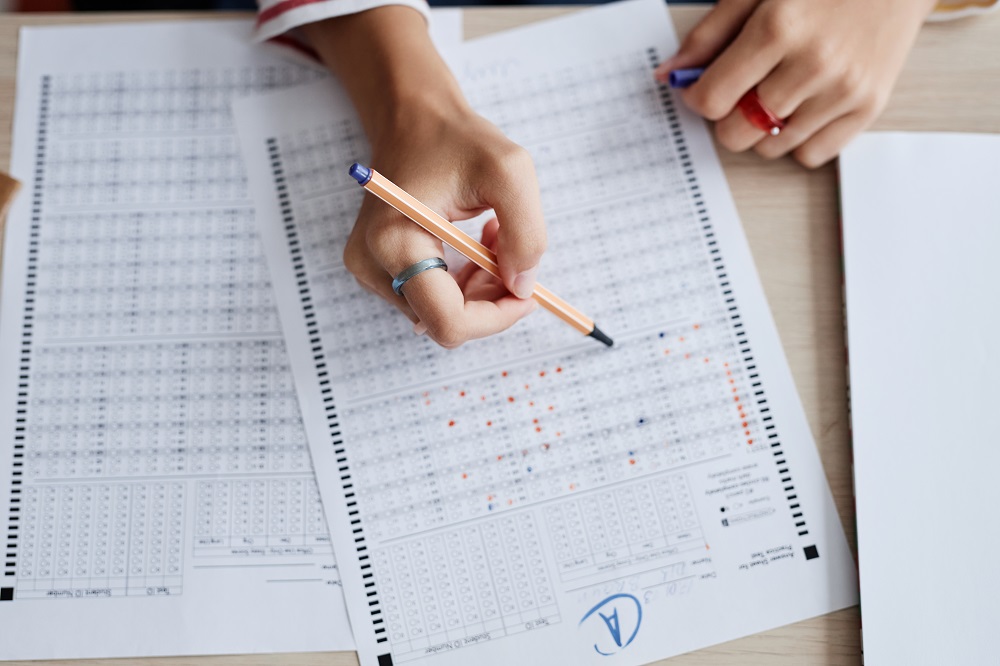
In a significant overhaul of the examination structure, the Central Board of Secondary Education (CBSE) has announced changes to the year-end assessment format for Classes 11 and 12, commencing from the academic session 2024-25. The board has decided to enhance the weightage for competency-based questions to 50%, a substantial increase from the previous session’s 40%. This adjustment aims to shift the focus towards application of concepts in real-life scenarios, aligning with the new National Education Policy (NEP) 2020.
The recent circular dispatched to all CBSE-affiliated schools outlines the board’s decision to reduce the weightage for traditional short and long-answer questions to 30%, down from 40% in the 2023-24 academic session. This move is part of the board’s ongoing efforts to foster an educational environment that prioritises critical thinking, creativity, and application of knowledge over rote memorisation.
“Continuing with its practice of aligning assessment and evaluation with the new National Education Policy (NEP) 2020 in the forthcoming 2024-25 academic session, the percentage of competency-based questions that assess application of concepts in real-life situations is increased by 10 per cent,” reads the circular issued on April 3.
Competency-based questions will encompass multiple-choice questions, case-based, and source-based integrated questions. According to a senior official from the CBSE, the increment in weightage for competency-based questions has been a consistent annual strategy for the past three years, reaching its peak at 50% this year.
The CBSE has chosen not to modify the examination format for Classes 9 and 10, maintaining the structure set during the previous academic year. The changes for senior secondary classes reflect the board’s commitment to the NEP’s vision of competency-based learning as opposed to the traditional textbook-driven approach.
“The main emphasis of the board was to create an educational ecosystem that would move away from rote memorisation and towards learning that is focused on developing the creative, critical and systems thinking capacities of students to meet the challenges of the 21st century,” the CBSE conveyed in its letter to school heads.
This reform is a stride towards equipping students with the necessary skills and knowledge to navigate the complexities of the modern world, ensuring they are not only exam-ready but also prepared for the challenges and opportunities that lie ahead in the 21st century.
Newsletter

Beyond The Screen: Virtual Battles, Real Consequences

India’s Eupheus Learning Recognised in TIME’s World’s Top EdTech Rising Stars of 2024

Kerala Sets National Benchmark with AI Training Programme for 80,000 Teachers

Marked by Marks: The Stereotyping of Student Potential

Ivy Pressure Unveiled- The Need to Look Beyond the Ivy Gates

Ooty Set to Host India’s Premier Liberal Arts Symposium: LASSI 2024

Scindia School Students Launch Start-Ups with White Canvas India’s Young CEO Program

Unsupervised Explorations: Rethinking Student Trips

Mapping Green Careers: Guiding Students Towards Sustainable Job Opportunities

Pricey Presents, Precocious Pressures: The Cost of Gift-Giving to Children

Addressing the Transition From Classrooms to Coaching: The Shifted Focus

Questioning the Trend of Lavish Farewells- #FarewellFiasco

Young Birders’ Workshop Opens Registration for Children Aged 10-13 Years

STEMpedia Successfully Completed Codeavour 5.0- India’s National Innovation Fest

Reviving School Education: Countering the Coaching Centre Dominance
CBSE to Initiate Pilot for National Credit System in Grades 6, 9, and 11

The Role of Marketing in Education: Navigating the New Educational Landscape

From Overwhelmed to Empowered: Strengthening Educator Skills for Success

NCERT Introduces Bridge Month Programme for Class 6 Amid Textbook Transition

Indian Embassy Advocates for India-US Collaboration in Education Sector

Nurturing Healthy Behaviors: The Role of Schools in Shaping Health-Conscious Citizens

CBSE Updates Exam Structure for 11th & 12th Class; Concept-based Questions Now 50% of Weightage

Sharing the spotlight: When parent and child take board exams together

Rebalancing the Scales: The Urgent Call for Humanities in STEM-Dominated Curricula

Palette of Possibilities: Nurturing Creativity in Schools through Modern Art

Life of My Father: Dr. Jagdish Gandhi, a Pioneer in Education

Mayo College Announces New Leadership

Post-pandemic: Embracing Well-being in India’s Schools with My Guide Inside

Empowering the Future: The Success of Beti Bachao Beti Padhao in Girls’ Education

Is Students’ Data in Safe Hands in a Digital World?

Central Government Sets New Framework for Coaching Centres

Radio Broadcasting in Schools: Creating a Platform for Student Voices

FPSB India and IIM Bangalore Forge Strategic Partnership to Advance Financial Education

Kerala Introduces ‘Water-Bell’ Initiative in Schools to Boost Hydration

Farewell to a Pioneer: Dr. Jagdish Gandhi’s Enduring Legacy in Education

Anticipating a Progressive Leap: The Education Sector’s Hopes for Union Budget 2024

Lexicon Schools Spark Innovation with STEAM Fest

The Need to Preserve Newspapers for Bias-Free Education

A Voice for All Ages: The Enduring Legacy of Ameen Sayani in Indian Education

From 2025-26, Indian Students to Get Two Opportunities to Sit for Board Exams

Seth M. R. Jaipuria School launches CBSE School in Bhiwadi, Rajasthan

International Women’s Day 2024: Are We Not Special?

The Rising Leaders’ Summit 2024: A Timeless Learning for Future Educational Leaders

ISRO Launches Young Scientist Programme 2024 for Budding Space Enthusiasts

Teach for India Invites Applications for its 2024 Fellowship Program

Ministry of Women and Child Development Unveils National Curriculum Framework for Early Childhood Care and Education

World Theatre Day: Let Theatre Arts Make Classroom’s Showtime Spectacular!

India Sets 6-Year Minimum Age for Class 1 Admissions Nationwide

CBSE considering Open Book Exams for classes 9-12, to do a pilot run in November

Education or Profit? Bombay High Court Calls for Accessible Learning for All
SGEF2023 | Special Address by Rama Datt, Trustee, Maharaja Sawai Man Singh II Trust, Jaipur

ScooNews | After Movie | ScooNews Global Educators Fest 2023

Aftermovie | NIES2 UP Chapter | 21 Jan 2023

WEBINAR | Gamification in Education: How Digital Badges Can Boost Student Motivation and Engagement

ScooNews | WEBINAR| Importance of Physical Activity for Children at School | Plaeto

SCOONEWS | WEBINAR | WHY DIGITIZING YOUR SCHOOL IS A MUST | TEACHMINT

Keynote Address | Lakshyaraj Singh Mewar

Anurag Tripathi, Secretary, CBSE at SGEF2022

How schools can nurture every student’s genius

Aftermovie | SGEF2022 | Jaipur

Li Andersson | Minister of Education | Finland

Anurag Tripathi, Secretary, Central Board of Secondary Education (CBSE) discusses NEP2020

ScooNews | Early Ed Asia 2019 | Aftermovie
#PodarECEconf : Pursuing quality ECE

#CBSE Class XII #Results #Highlights

The interesting story of India’s educational system | Adhitya Iyer

A young scientist’s quest for clean water

The Danger of Silence: Clint Smith

National Digital Library of India is an initiative by HRD Ministry

Remembering Kalpana Chawla on her birthday!

Message from Sadhguru for Students!
Message from Sadhguru for Students!

The Untapped Genius That Could Change Science for the Better

Eddy Zhong: How school makes kids less intelligent TEDxYouth@Beacon

#TEDxCanberra : What if every child had access to music education…
Trending
-
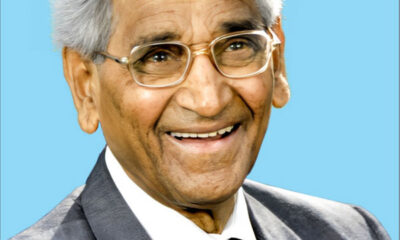
 Inspiration1 month ago
Inspiration1 month agoLife of My Father: Dr. Jagdish Gandhi, a Pioneer in Education
-
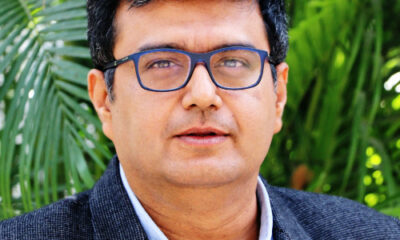
 Education3 months ago
Education3 months agoMayo College Announces New Leadership
-

 Education1 month ago
Education1 month agoPost-pandemic: Embracing Well-being in India’s Schools with My Guide Inside
-
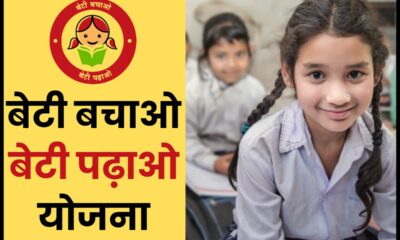
 Education3 months ago
Education3 months agoEmpowering the Future: The Success of Beti Bachao Beti Padhao in Girls’ Education
-
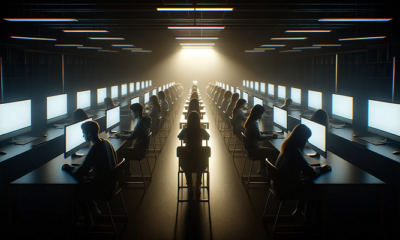
 Knowledge3 months ago
Knowledge3 months agoIs Students’ Data in Safe Hands in a Digital World?
-
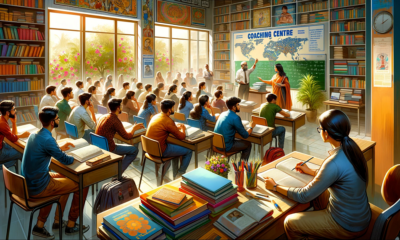
 Education3 months ago
Education3 months agoCentral Government Sets New Framework for Coaching Centres
-
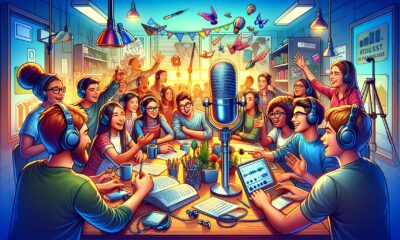
 Education2 months ago
Education2 months agoRadio Broadcasting in Schools: Creating a Platform for Student Voices
-
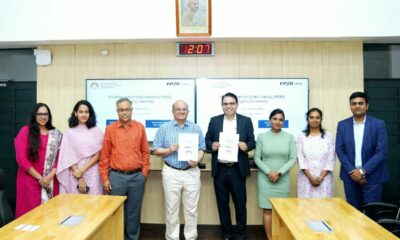
 Education4 weeks ago
Education4 weeks agoFPSB India and IIM Bangalore Forge Strategic Partnership to Advance Financial Education
-

 Education2 months ago
Education2 months agoKerala Introduces ‘Water-Bell’ Initiative in Schools to Boost Hydration
-
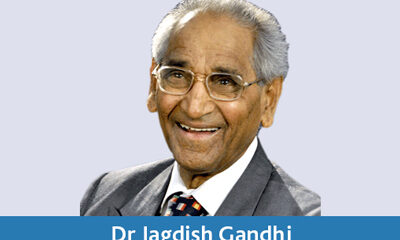
 Education3 months ago
Education3 months agoFarewell to a Pioneer: Dr. Jagdish Gandhi’s Enduring Legacy in Education



